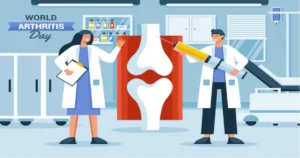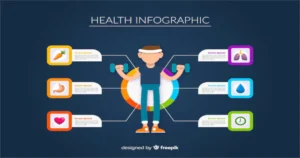How CVS Health IT is Revolutionizing Healthcare with Technology
In today’s rapidly evolving healthcare landscape, technology has become an essential tool for improving patient outcomes, streamlining operations, and enhancing overall healthcare experiences. One company at the forefront of this transformation is CVS Health IT, a division of CVS Health that integrates innovative technology solutions to improve both patient care and operational efficiency. In this comprehensive blog post, we’ll explore how CVS Health IT is revolutionizing the healthcare industry, its key initiatives, and the role it plays in shaping the future of healthcare services.
What is CVS Health IT?
CVS Health IT refers to the technology-driven division of CVS Health, a healthcare conglomerate that includes a wide array of services, from retail pharmacies to insurance plans and health clinics. The division focuses on leveraging IT solutions to streamline healthcare operations, improve patient experiences, and enhance the delivery of care across multiple platforms.
CVS Health IT serves as a critical component in CVS Health’s mission to create a more accessible, affordable, and efficient healthcare system. Through cutting-edge technologies like electronic health records (EHR), health data analytics, cloud computing, and AI-driven health solutions, CVS Health IT is helping transform how healthcare is delivered to millions of patients.
The Role of Technology in Healthcare
Technology’s role in healthcare is growing exponentially. It has become a powerful tool for improving everything from administrative tasks to patient care. By implementing advanced IT solutions, healthcare organizations can achieve the following goals:
- Improve Patient Care: Advanced technology enables more accurate diagnoses, better treatment options, and continuous monitoring of patient health.
- Enhance Operational Efficiency: Automated workflows, cloud systems, and AI solutions improve operational processes and reduce human errors.
- Reduce Healthcare Costs: Technology can streamline healthcare delivery, reduce unnecessary visits, and lower the overall cost of care.
- Improve Data Management: With integrated health data systems, patient information is more accessible, secure, and up-to-date, improving decision-making.
CVS Health IT is playing a pivotal role in these technological advances, driving innovation within the healthcare space.
Key Technologies Used by CVS Health IT
CVS Health IT employs a variety of technologies to enhance healthcare delivery. Below are some of the key technologies that have transformed CVS Health’s IT infrastructure:
1. Electronic Health Records (EHR) Systems
Electronic Health Records (EHR) are digital versions of patients’ paper charts, providing real-time access to patient data for healthcare providers. By implementing EHR systems, CVS Health IT helps healthcare professionals access, update, and share patient information more efficiently. This improves patient outcomes, as medical decisions can be made quickly and accurately based on comprehensive, up-to-date data.
2. Health Data Analytics
Health data analytics allows healthcare providers to analyze vast amounts of data to identify trends, make informed decisions, and improve patient care. CVS Health IT uses data analytics tools to examine health patterns, predict patient needs, and enhance preventative care measures. By tapping into data sources, CVS Health IT can provide insights that lead to more personalized healthcare plans for individuals.
3. Cloud Computing
Cloud computing enables CVS Health IT to store and manage vast amounts of healthcare data securely and efficiently. By utilizing cloud solutions, CVS Health can scale its IT infrastructure and facilitate seamless data sharing between different healthcare providers. Cloud computing also supports CVS Health’s telehealth services, ensuring that patient consultations can be conducted remotely, especially during emergencies like the COVID-19 pandemic.
4. Artificial Intelligence (AI) and Machine Learning (ML)
The use of Artificial Intelligence (AI) and Machine Learning (ML) is growing rapidly in healthcare, and CVS Health IT is at the forefront of this revolution. AI-driven systems can analyze patient data, recommend personalized treatments, and even assist in diagnosis by processing large datasets more quickly than human practitioners.
5. Telehealth Solutions
Telehealth, or the provision of healthcare services remotely, has become a vital part of healthcare delivery. CVS Health IT integrates telehealth solutions into its offerings, allowing patients to receive care through virtual consultations. Whether it’s for routine check-ups or specialized care, telehealth provides convenience, accessibility, and safety, especially for patients with mobility issues or those in remote locations.
CVS Health IT’s Role in Patient-Centered Care
At the core of CVS Health IT’s strategy is patient-centered care. This approach focuses on providing personalized, high-quality care that meets the individual needs of patients. By utilizing advanced technology, CVS Health IT ensures that patients receive the right care at the right time.
1. Personalized Health Plans
Through data analytics and AI, CVS Health IT can create personalized health plans based on an individual’s health history, genetic information, and lifestyle factors. This personalized approach not only enhances the quality of care but also improves patient satisfaction and health outcomes.
2. Remote Monitoring
Remote patient monitoring is one of the key benefits of Patient care technological innovations. By using wearable devices and connected health tools, Patient care can monitor patients’ health in real-time, alerting healthcare providers to any changes that may require intervention. This proactive approach helps in managing chronic conditions such as diabetes, heart disease, and hypertension.
3. Medication Management
Patient care helps ensure patients adhere to their prescribed medications by integrating digital tools for medication management. Through mobile apps and automated reminders, patients can receive notifications about their medications, helping to reduce medication errors and improve health outcomes.
Enhancing Efficiency with Automation and AI
Automation and artificial intelligence are two pillars that significantly improve operational efficiency in healthcare. Patient care has implemented these technologies in various aspects of its operations:
1. Automated Claims Processing
Claims processing is a time-consuming task that often leads to delays and errors. With automation, Patient care
streamlines the entire process, reducing processing time and minimizing errors. This allows CVS Health to focus on delivering high-quality care to patients while ensuring that insurance claims are handled efficiently.
2. AI-Driven Patient Interaction
AI-driven chatbots and virtual assistants are increasingly being used in healthcare to provide patients with immediate assistance and information. Patient care integrates AI-powered solutions to engage with patients, answer basic health-related questions, and guide them through the healthcare process. This not only enhances the patient experience but also reduces the workload on healthcare professionals.
3. Predictive Analytics for Resource Management
Patient care uses predictive analytics to anticipate patient needs, optimize staff scheduling, and manage healthcare resources more efficiently. By analyzing historical data, predictive models can help forecast patient volume and ensure that resources such as medical staff, equipment, and medications are adequately prepared.
CVS Health IT’s Impact on the Healthcare Industry
The integration of IT solutions into healthcare has transformed the industry in numerous ways. Here are some of the key impacts that CVS Health IT has had:
1. Improved Accessibility
By implementing telehealth services, Patient care has made healthcare more accessible to underserved communities. Patients no longer need to travel long distances for medical appointments; instead, they can access quality healthcare services from the comfort of their homes.
2. Enhanced Efficiency
CVS Health IT has optimized administrative and clinical workflows, leading to reduced wait times, faster diagnoses, and better overall patient care. By automating manual tasks, Patient care has made healthcare operations more efficient and less prone to human error.
3. Cost Reduction
Technology enables CVS Health IT to reduce healthcare costs by preventing unnecessary visits, streamlining administrative tasks, and providing patients with preventive care. Through predictive analytics, Patient care can identify high-risk patients early, enabling intervention before costly medical conditions arise.
4. Increased Patient Satisfaction
Patient satisfaction is at the forefront of CVS Health IT’s strategy. By offering personalized care plans, improving communication, and providing remote healthcare options, Patient care has created a healthcare experience that prioritizes convenience, accuracy, and patient-centered care.
The Future of CVS Health IT
Looking ahead, CVS Health IT is set to continue playing a crucial role in shaping the future of healthcare. With the ongoing advancements in AI, machine learning, and data analytics, Patient careis committed to developing innovative solutions that address the evolving needs of patients and healthcare providers.
1. Expansion of Telehealth
Telehealth services are expected to expand further, offering more patients access to specialized care, mental health services, and routine consultations. CVS Health IT will likely continue to integrate advanced telemedicine platforms to meet the growing demand for virtual healthcare.
2. AI and Predictive Analytics
AI and predictive analytics will continue to be a significant Patient care strategy. With the ability to predict patient outcomes, identify health risks, and recommend treatments, AI will help CVS Health IT further enhance the quality of care and operational efficiency.
3. Blockchain for Health Data Security
As healthcare data security becomes increasingly important, CVS Health IT is exploring the use of blockchain technology to ensure that patient data remains secure, private, and easily accessible to authorized parties.
Conclusion
CVS Health IT is a prime example of how technology can transform the healthcare industry. From electronic health records and data analytics to telehealth services and AI-driven solutions, CVS Health IT is leading the charge in making healthcare more accessible, efficient, and patient-centered. As the healthcare landscape continues to evolve, CVS Health IT’s innovative use of technology will continue to shape the future of healthcare delivery.
By embracing digital health solutions, CVS Health IT is ensuring that patients receive high-quality care, while also improving operational efficiencies and reducing healthcare costs. The future of healthcare is here, and it’s driven by technology.
Frequently Asked Questions (FAQs)
What role does CVS Health IT play in improving patient care?
CVS Health IT leverages cutting-edge technology to enhance patient care by integrating electronic health records (EHR), data analytics, and artificial intelligence. By providing healthcare professionals with real-time access to critical patient information, it ensures more accurate diagnoses, personalized treatment plans, and timely interventions. This comprehensive approach helps create a seamless healthcare experience for patients while improving outcomes and reducing the risk of errors.
How does CVS Health IT improve healthcare operations?
Through the adoption of cloud computing, data analytics, and AI-based systems, CVS Health IT streamlines administrative tasks and enhances the efficiency of healthcare services. Automation of routine processes, such as appointment scheduling, billing, and inventory management, allows healthcare providers to focus more on patient care. Additionally, integrated systems reduce redundancies and minimize human errors, leading to smoother workflows and improved operational efficiency.
What technologies are used by CVS Health IT to deliver better healthcare services?
CVS Health IT employs several innovative technologies to deliver enhanced healthcare services. These include cloud-based platforms for secure data storage and access, AI-driven health analytics for personalized treatment, telemedicine solutions for virtual care, and mobile applications that allow patients to manage their health remotely. These technologies help streamline processes, improve patient engagement, and provide healthcare providers with the tools they need for better decision-making.
How does CVS Health IT help reduce healthcare costs?
By improving operational efficiencies and reducing human errors, CVS Health IT contributes to lowering healthcare costs. Automation and integration of systems reduce administrative overhead, which lowers the cost of patient care delivery. Furthermore, predictive analytics and AI tools allow healthcare providers to identify cost-effective treatment options and avoid unnecessary procedures, ultimately reducing the financial burden on both patients and healthcare providers.
Is CVS Health IT focused on patient privacy and data security?
Yes, CVS Health IT places a high priority on patient privacy and data security. The company follows strict security protocols to protect sensitive patient data, including encryption, secure cloud storage, and compliance with regulatory standards like HIPAA (Health Insurance Portability and Accountability Act). This ensures that patient information is kept private and secure while still being accessible to healthcare providers when needed.
How does CVS Health IT improve access to healthcare for patients?
CVS Health IT helps increase access to healthcare through innovations like telemedicine, which allows patients to consult with healthcare professionals remotely, reducing the need for in-person visits. Additionally, mobile apps and online portals give patients easy access to their health records, appointment scheduling, prescription refills, and health monitoring tools. This digital approach makes healthcare services more accessible, particularly for patients in underserved areas or those with mobility challenges.
READ ALSO: Discovering Hazelhurst, WI: A Hidden Gem in the Heart of Wisconsin





















